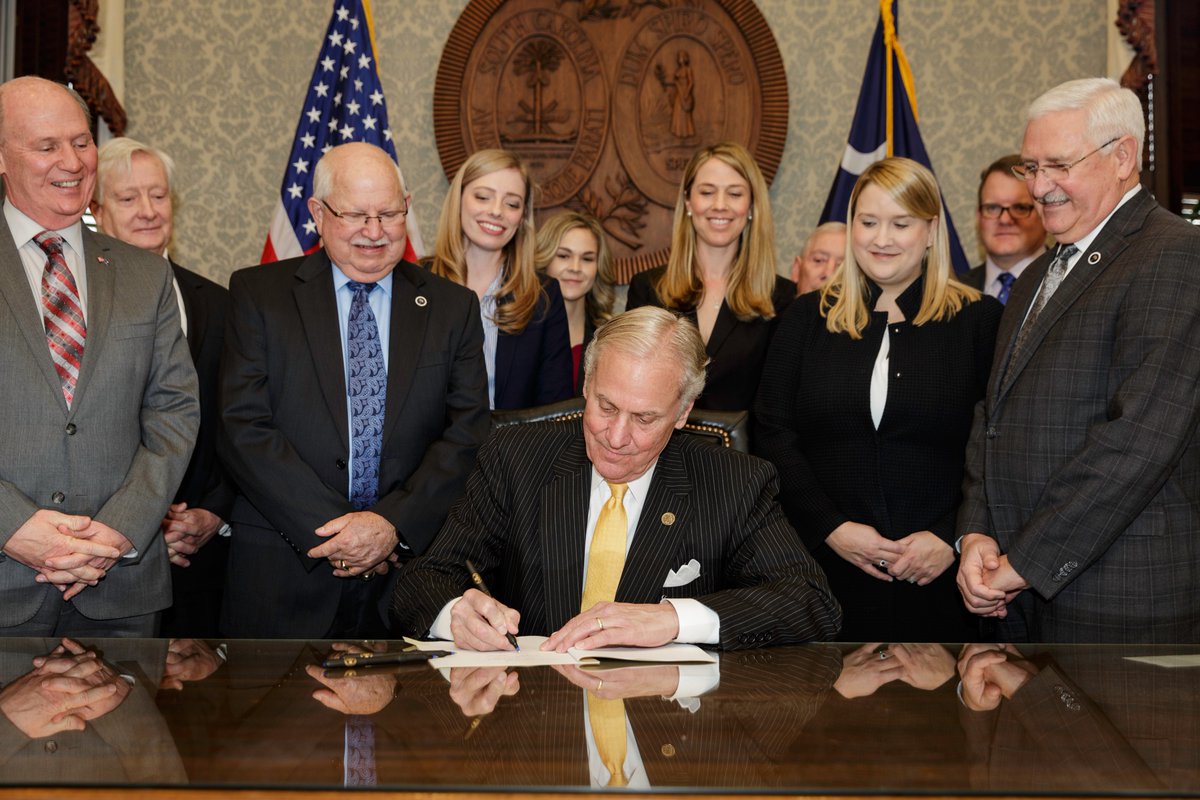
It’s 2018; Here’s What to Expect from Your Advocacy Team
January 8, 2018
Statement About “Nuisance Bill” Signing
February 13, 2018Fix DACA Now

This op-ed ran in the February 1 edition of The Greenville News.
Only in Washington can an issue supported by 86 percent of Americans be considered controversial.
That issue: Whether Deferred Action for Childhood Arrivals (DACA) recipients can stay in the United States legally.
February is crunch time. Beginning March 5, 1,000 young adults each day – about 100 a week in South Carolina – will lose their right to be in this country legally. All because a handful of conservatives are unwilling to make any compromises on immigration and a handful of progressives continue to cling to DACA as a wedge issue for their presidential aspirations in 2020.
The Greenville Chamber and the Upstate Chamber Coalition strongly support a federal solution that allows DACA recipients to stay in the country legally to continue their education or employment. That legislation needs to be passed now.
We also support state legislation, filed by Republican Rep. Neal Collins of Easley, which will allow DACA residents to obtain state licenses to work in professions such as nursing, cosmetology, real estate, construction, and even geology and forestry. (There is a bigger, long-term issue about the licenses and barriers to employment that are proliferating in South Carolina and many other states, but that will wait for another day.)
At the national level, an ABC News/Washington Post poll showed that nearly two thirds of Americans – 76 percent of Republicans, 66 percent of independents, and 59 percent of Democrats – support extending DACA while increasing border security. President Trump said this week that he can see a pathway to citizenship for the 1.8 million people eligible for DACA. There is strong support for compromise.
Yet, we seemingly can’t get it done.
A deal on DACA will not only help those 800,000 young adults in the program (and 1 million eligible, but not registered), but also will hopefully prove to Washington that immigration is not the new third rail of politics. This should pave the way for broader reform packages to change an immigration system that everybody in America understands is broken. For example, we would like to see changes such as making high-skill visas easier to receive in smaller metro areas like ours.
Despite the panic on 24-hour news and fake news sites, the United States’ population is growing very slowly, according to the Census Bureau. The St. Louis Fed reported a historic decline in the working-age population (defined as people between the ages of 15-65). A decline in working age population, a slowing birth rate, and an aging population means we will need folks from outside the United States to continue to grow our economy.
Predicting future economic growth is a fool’s errand, but the growth in working-age population is strongly tied to economic growth. If our country wants to sustain a 3 percent growth rate, promoting immigration policies that bring the best and brightest to the United States – starting with DACA recipients and the 1 million foreign students studying at American universities – is a good place to start.
DACA is a test.
In Washington, we urge Congressmen Trey Gowdy, Jeff Duncan, and Ralph Norman to join Sens. Lindsey Graham and Tim Scott to work on a DACA solution that keeps these young adults in the United States.
Here in South Carolina, we urge Upstate members of the state House of Representatives and Senate to sign on to Rep. Collins’ bill and we urge House Speaker Jay Lucas, R-Hartsville, and Judiciary Chairman Greg Delleney, R-Chester, to schedule hearings on this legislation quickly.
Representatives from Columbia to Washington need to make DACA a priority now, and then set the table for an immigration reform package that will both fill our workforce needs and allow our economy to continue its expansion.
Jason Zacher is senior vice president of business advocacy for the Greenville Chamber.
This op-ed ran in the February 1 edition of The Greenville News.




